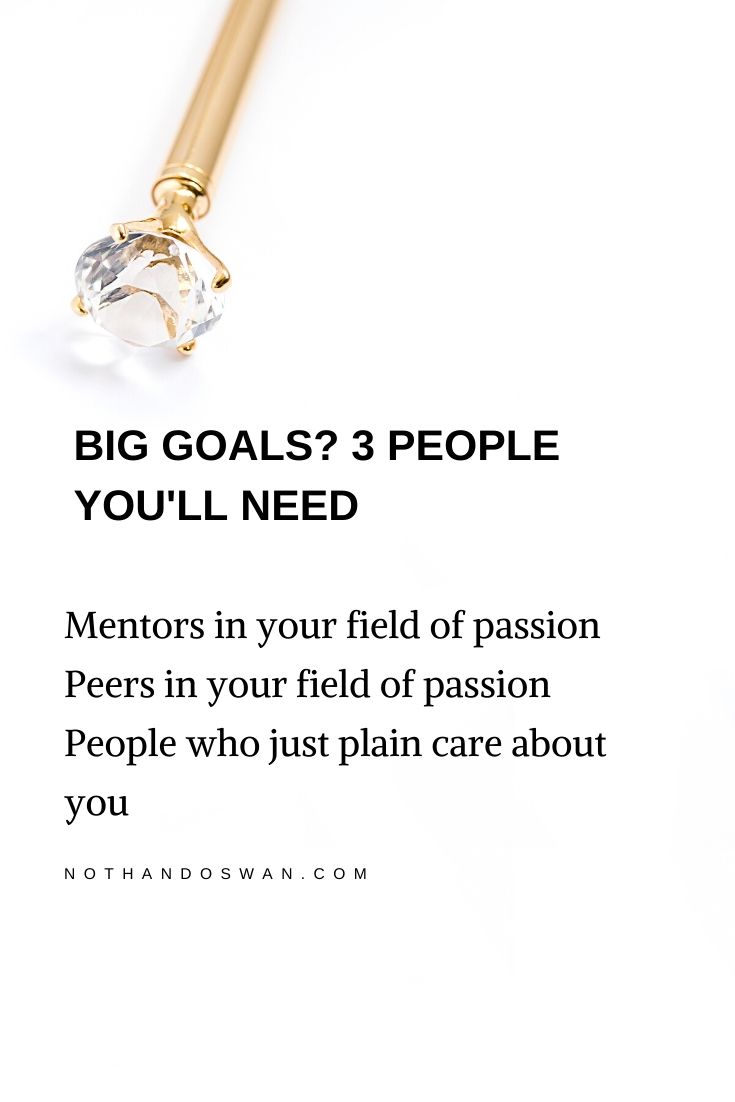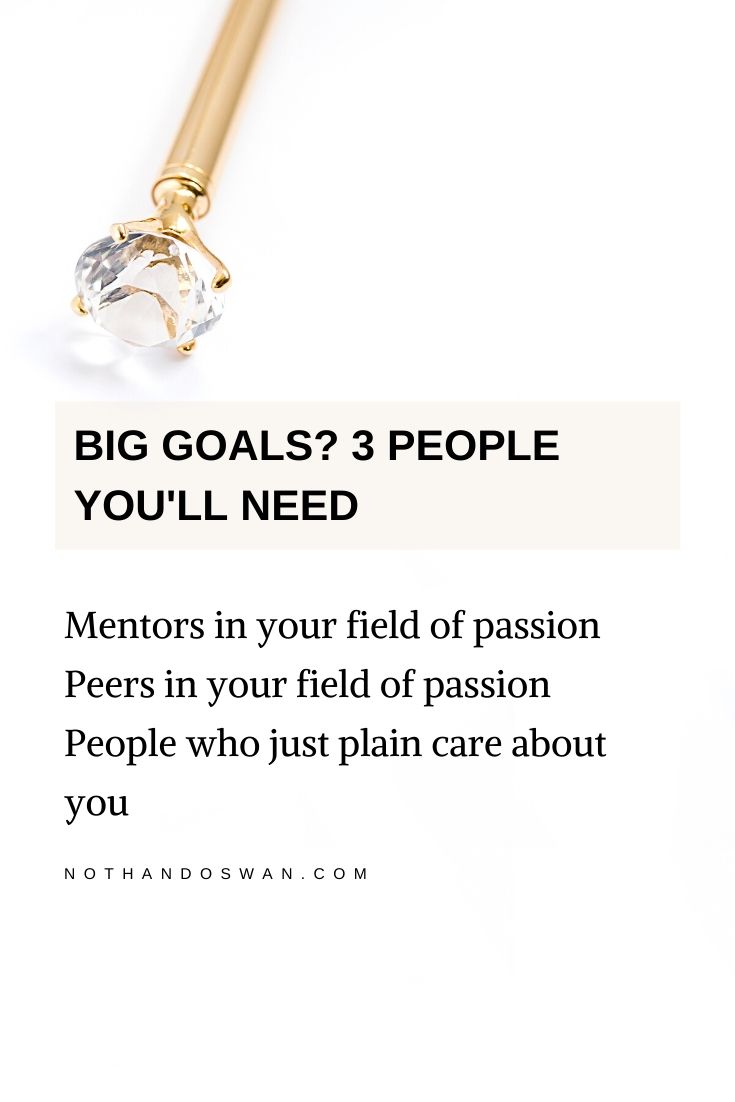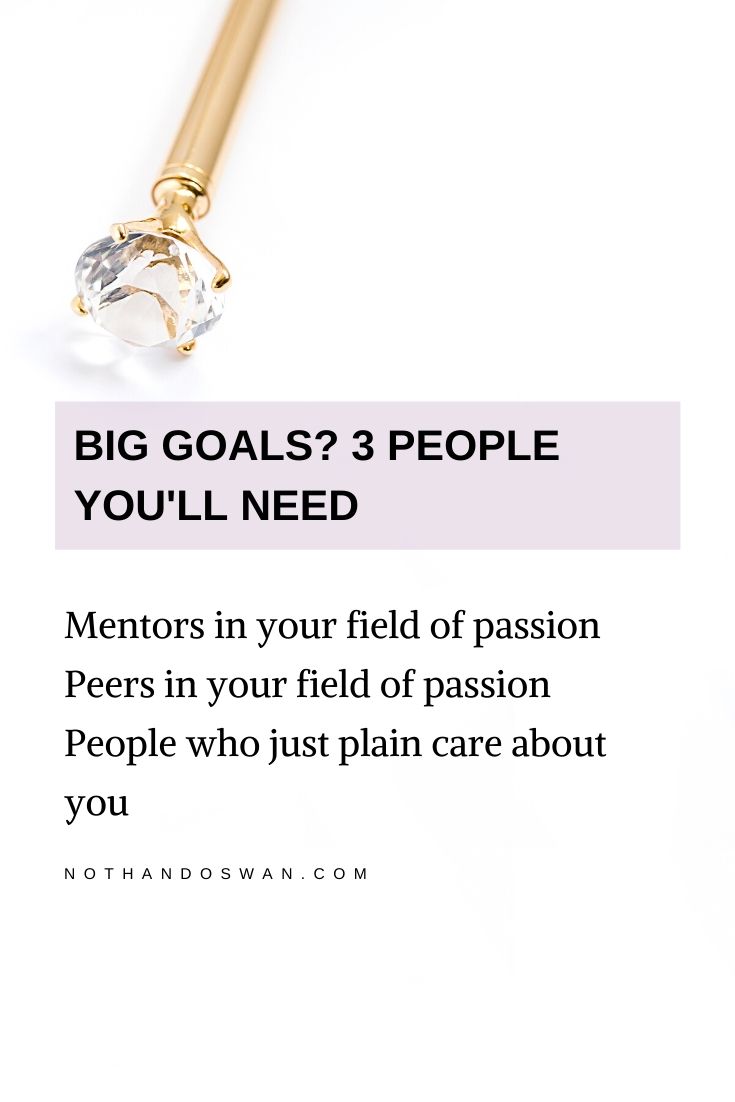I had two weeks to put in my application for a master’s in public health, and it wasn’t looking good. First of all, I was working every day, and second of all, I needed two letters of recommendation – something you should never ask for at the last minute.

But never say never, right? In this post, I’m going to tell you exactly how I got into my master’s program. And hint: it had little to do with me and everything to do with my support.
So, here are the three types of people that multi-passionate working women need in their lives.
1. You’re going to need mentors in your field of passion
Don’t cringe at this one, because it really isn’t as difficult as it seems. A lot of the time, especially if we’re not already in the spaces we want to be, the advice to “seek mentors” seems insensitive. It’s easy to talk to people you admire if you already have connections. But most of us don’t.
Even so, mentors come in all shapes and sizes (tall, grande, venti). And remember, they’re people too (okay, so I just objectified them, but I could go for some tea right now).
I can guarantee you that your biggest professional role models have spoken about their work in some type of public forum. Do some research and find any publications they may have, interviews they’ve given, or projects they’ve spoken of lately. You can come under their mentorship simply by engaging with their work.
Now, on the other hand, it can be easy for working women to discount our accomplishments and put others up on pedestals. But the beautiful thing is you may share a lot of similarities with these mentors and be in a position to see things from their perspective.

Take advantage of this. For the mentors that you can see in person or connect with over the phone, take some time to think about what small act of kindness you can do for them (rather than what small piece of advice you can get from them).
One of the best things about being a mentee is that you have a lot more to offer your role models than you think. You have passion, you have flexibility, and you can think differently about what’s “always been done.”
Just as your mentors are knowledgeable and kind to you, you can be knowledgeable and kind as well. Send a brief email update from time to time – or even better – a hand-written note. You can even show your mentor that you’ve acted on something you discussed together.
Having a mentor in your field of passion is important for obvious reasons, but don’t forget what you have to offer in these relationships:
- A fresh perspective
- New interests and passion in the field, and
- Thoughtful follow-ups
2. You’ll also need peers in your field of passion
Sometimes a peer can be even better than a mentor. There’s something truly special about going through an experience with someone rather than being coached through an experience. For multi-passionate working women, some of our closest bonds come from other people who get the grind.
The woman in your class who also crammed for that licensing exam knows what you mean when you say you’ve been through it. And the colleague who joined the team at the same time? Both of you have a story about how nervous you were applying for the job in the first place.

Especially when we’re working towards more than one passion, it can be so helpful to have other people who really get you.
Stepping out into something new can be daunting. And it can also be hard to navigate. That’s why if you’re going to do more than one thing successfully, make sure you have friends in each of those areas so that you can share both professional and personal support.
Lastly, you’ll need folks who are passionate about you and your success
Arguably, the most important group of people supporting multi-passionate working women are the people who care about them and all of their interests.
What’s really special is that sometimes, these people fall into all three groups.
Take my residency preceptor. When I first entered family medicine, he was a mentor in my field. He showed me how he ran his clinic, how to write a prescription in our electronic system, and how to make big decisions with patients.
Then, as I graduated, he became a peer. Granted, I still think he’s a much smarter peer than I am, but we’re fellow colleagues doing some of the most amazing work there is.
Finally, when I moved cities and no longer spent clinic days with him, I knew exactly who to reach out to for a reference letter. My family med preceptor is passionate about my success. It wasn’t a problem for him to whip out yet another reference letter for me on a last-minute basis because he has my back. He wants to see me do well in medicine and in all of my other passions.
Support like this is gold.
Summary
So in the end, my application went through and I was accepted into my master’s program. I used my academic days away from clinic to attend my first week of classes, and I’ve been a student ever since! Because I’m multi-passionate and already work full-time, I needed the support of these people:
- Mentors in my field of passion
- Peers in my field of passion
- And people who are just plain passionate about me
I am so excited for you to continue going after the things you love, and I hope this post has inspired you to make sure your squad runs deep. If you don’t have a self-care coach but you have a great career, hiring one is your next best move.
A coach falls into category #3; someone who cares about your goals and will help make sure they happen. It’s the difference between planning how to achieve your goals and actually taking the steps to do so. Click here for a complimentary consult with me so we can talk about your plans and troubleshoot anything that might be holding you back.
See you in the next post!


